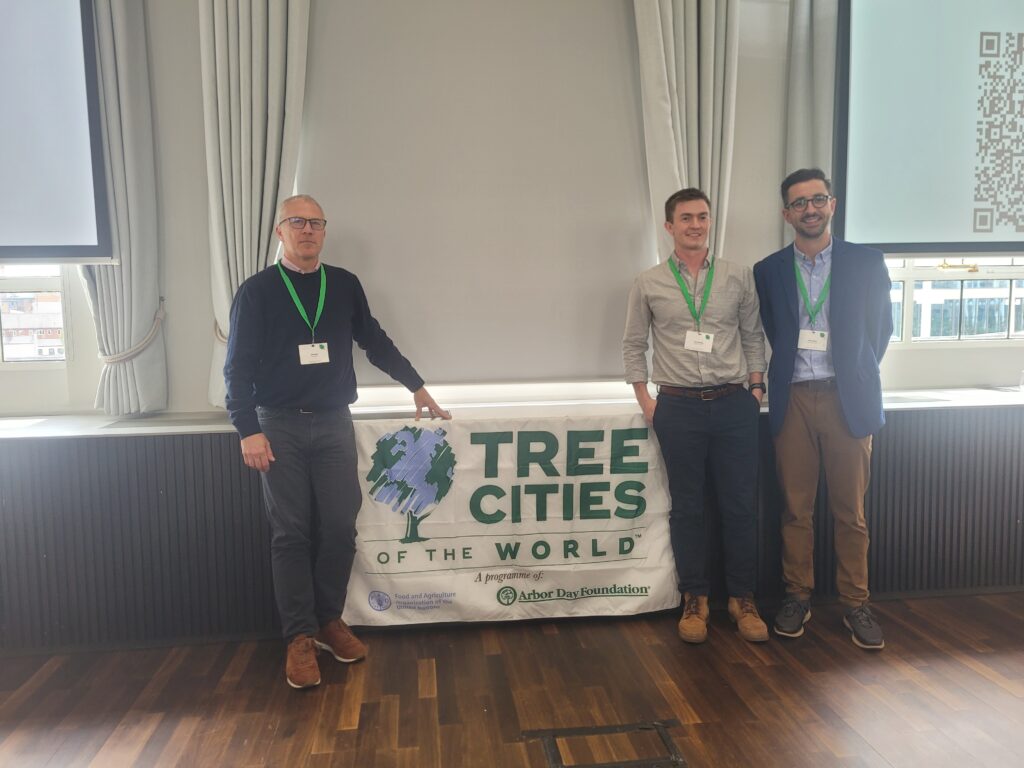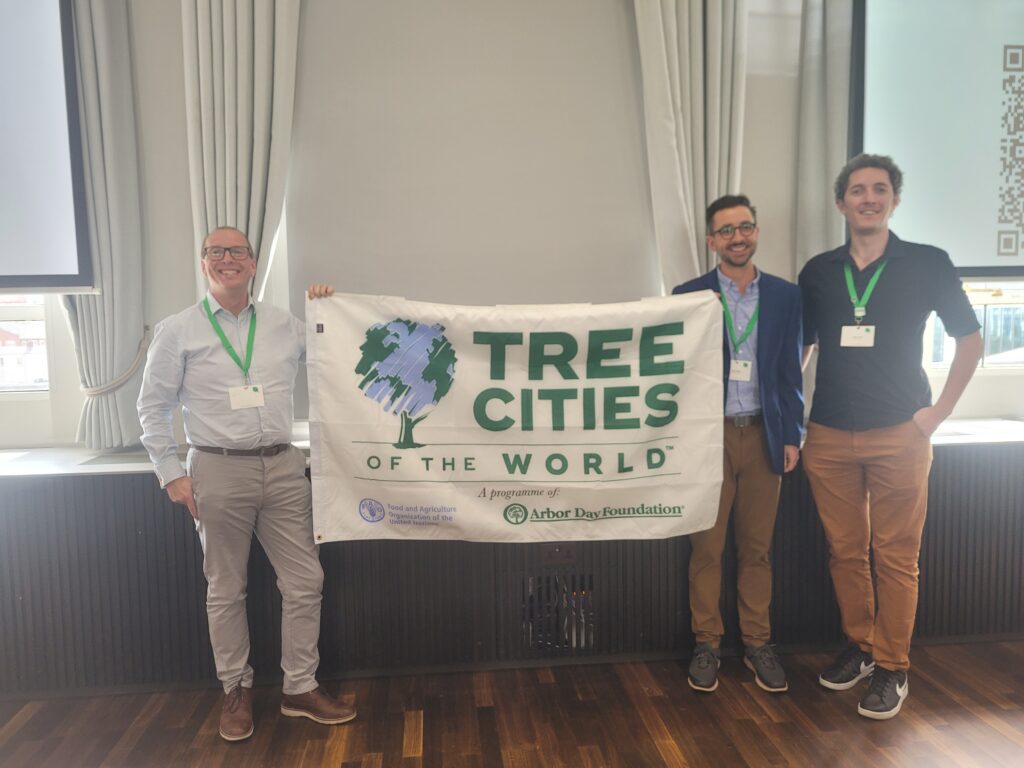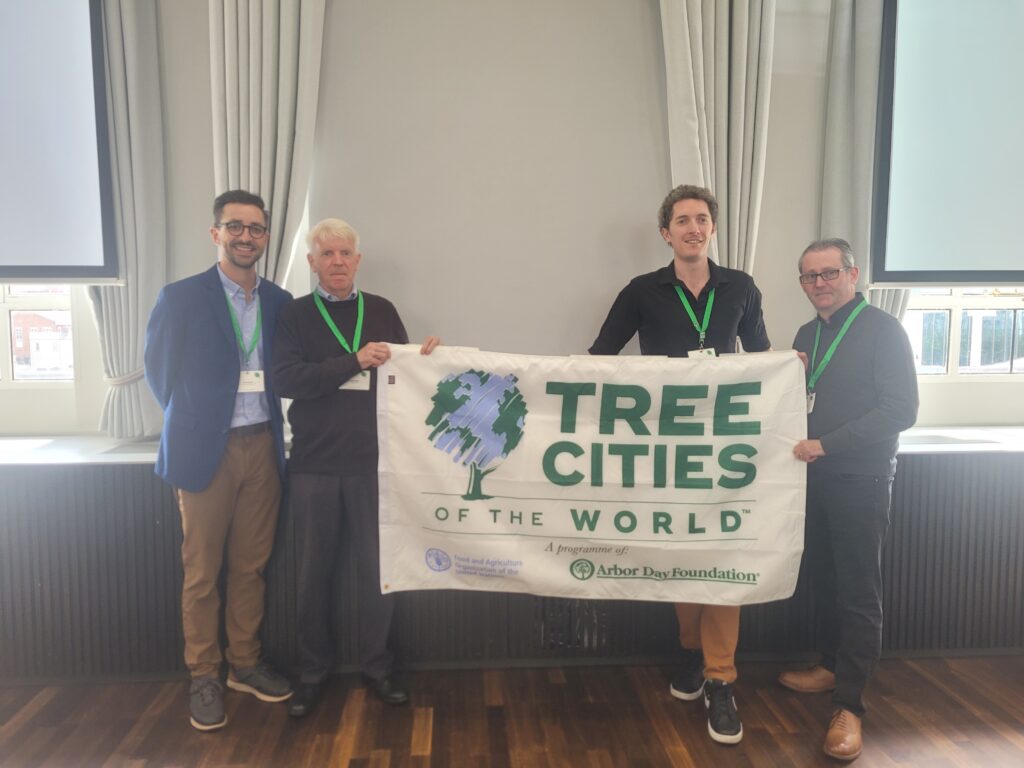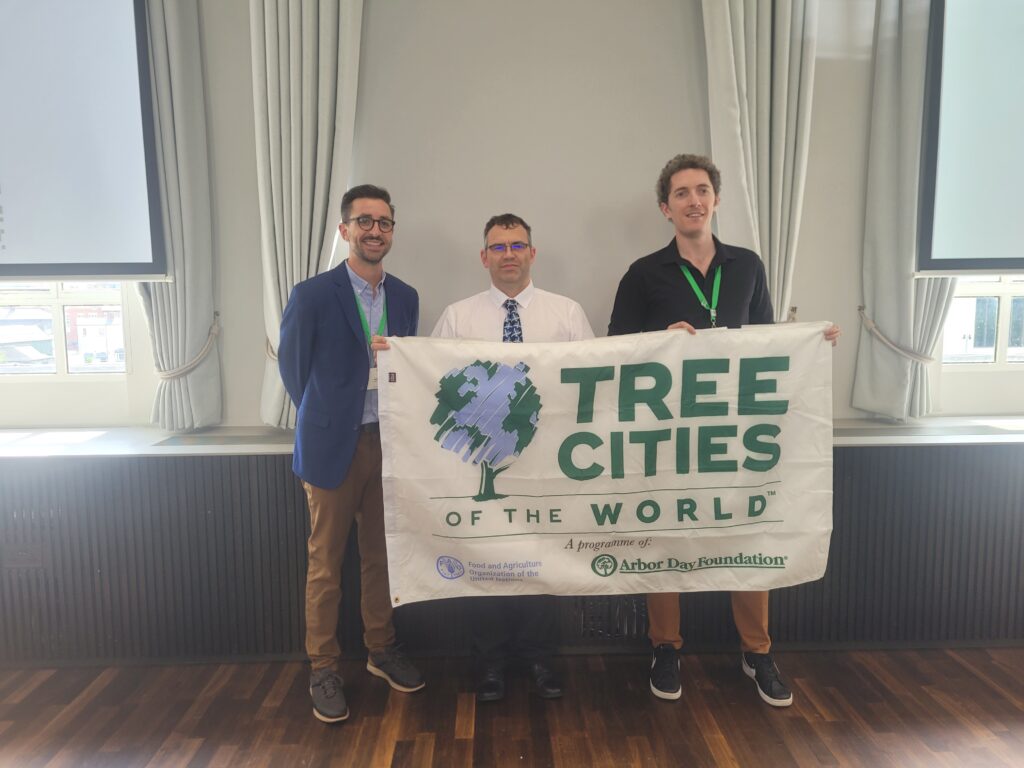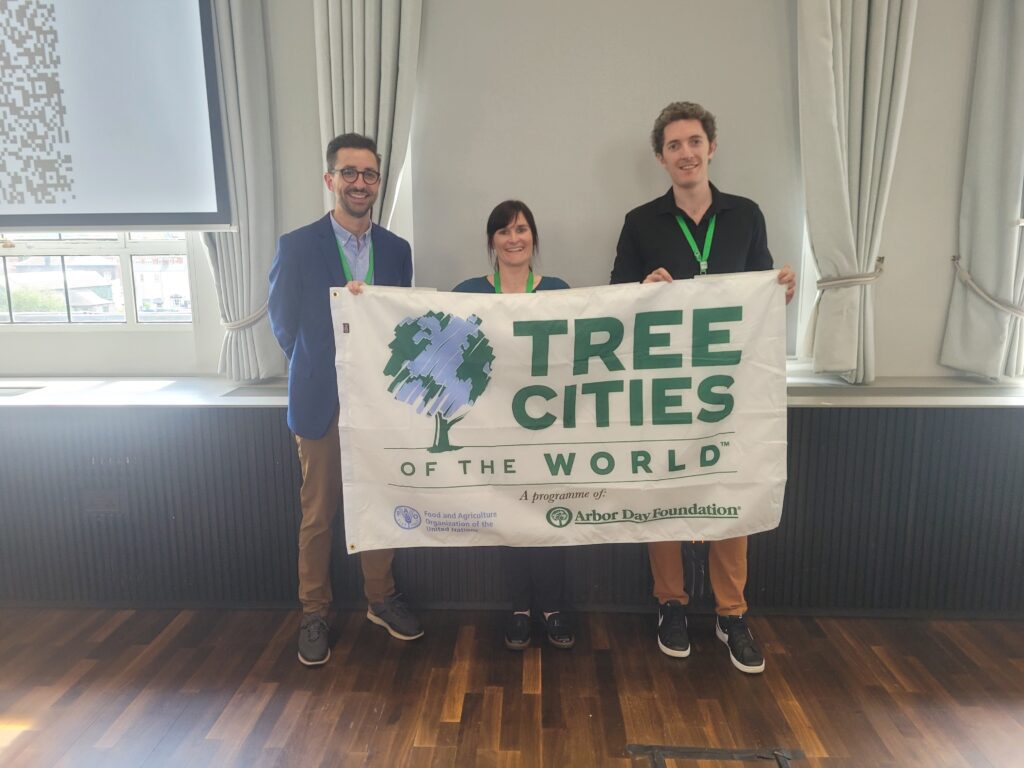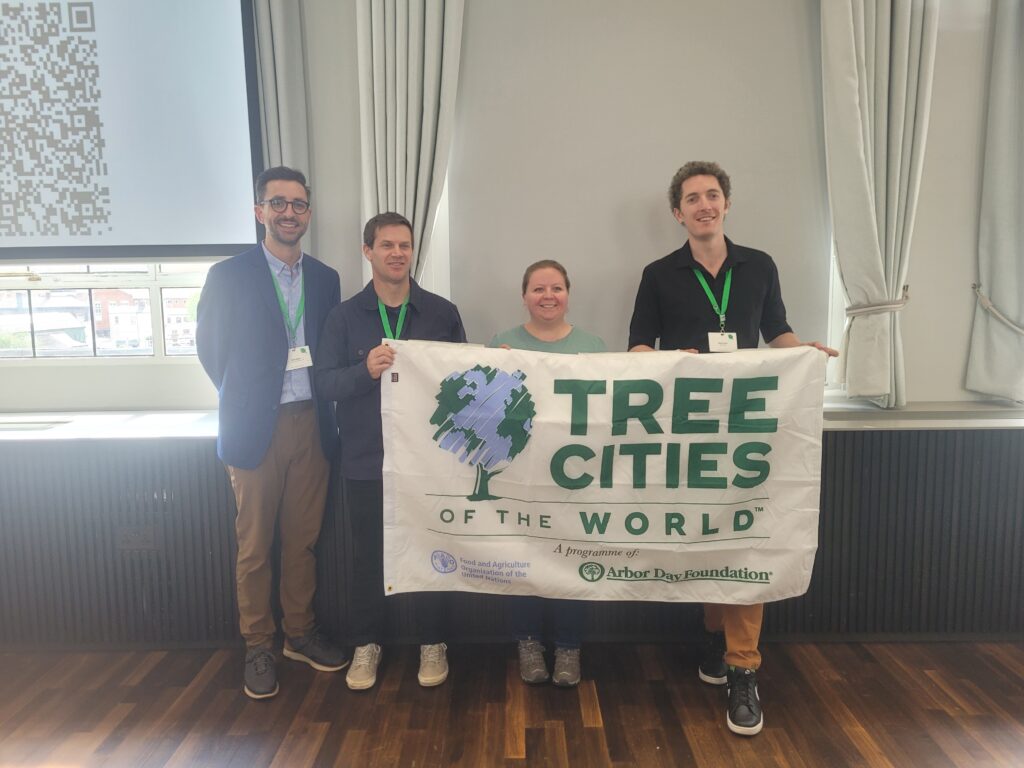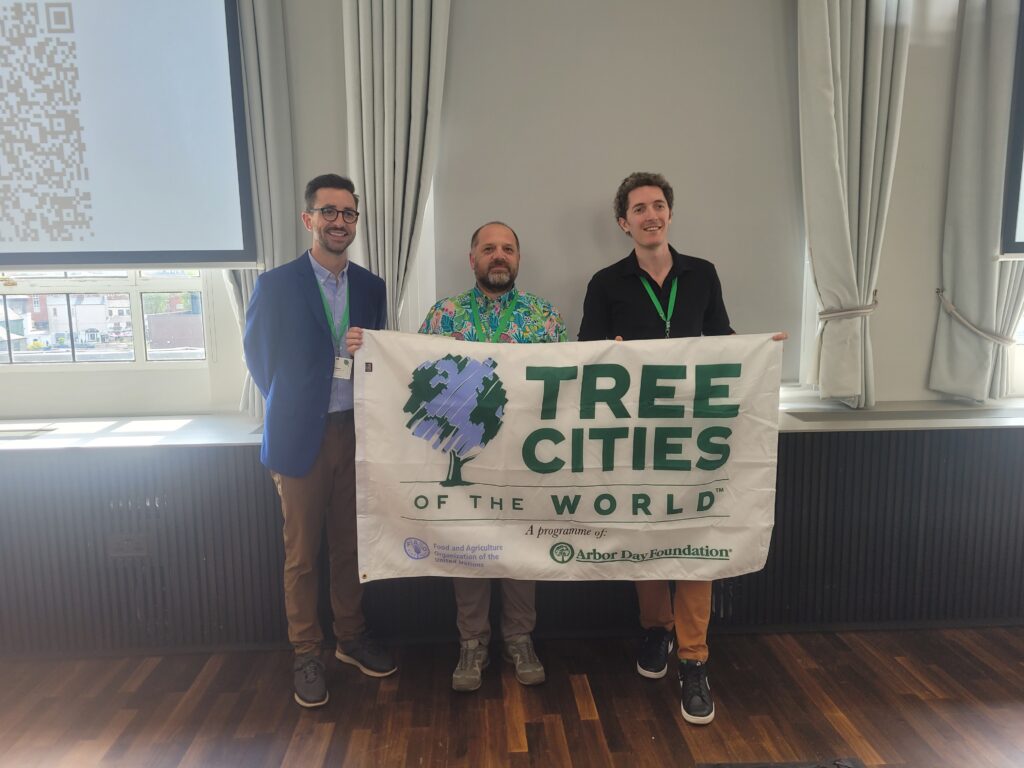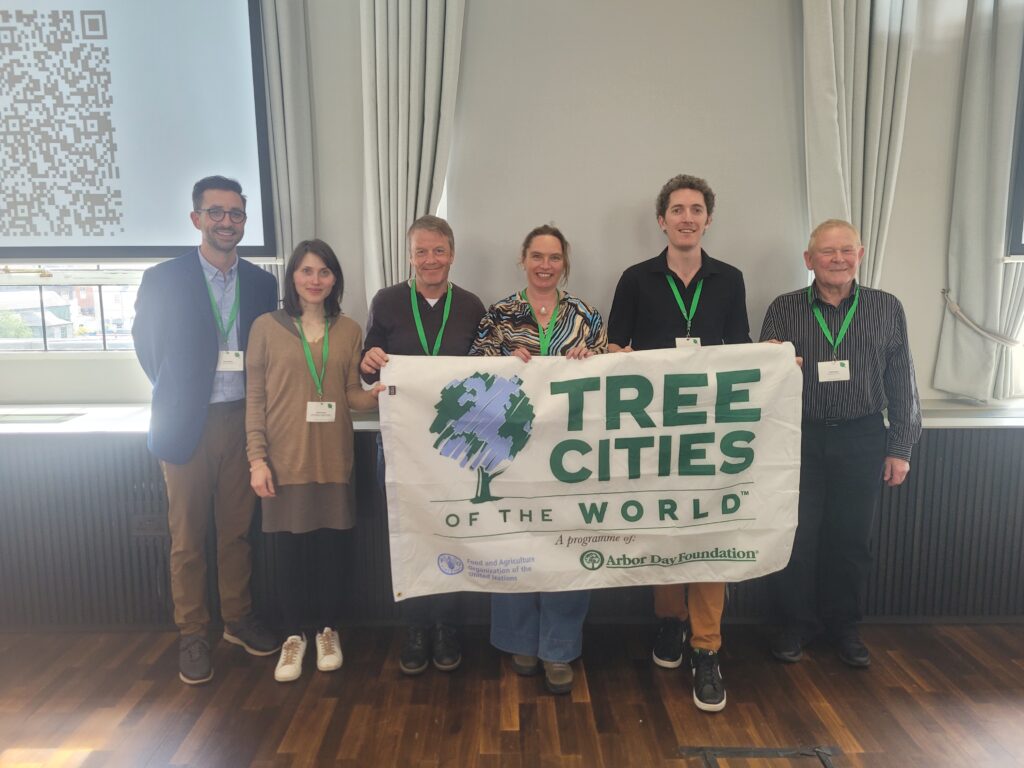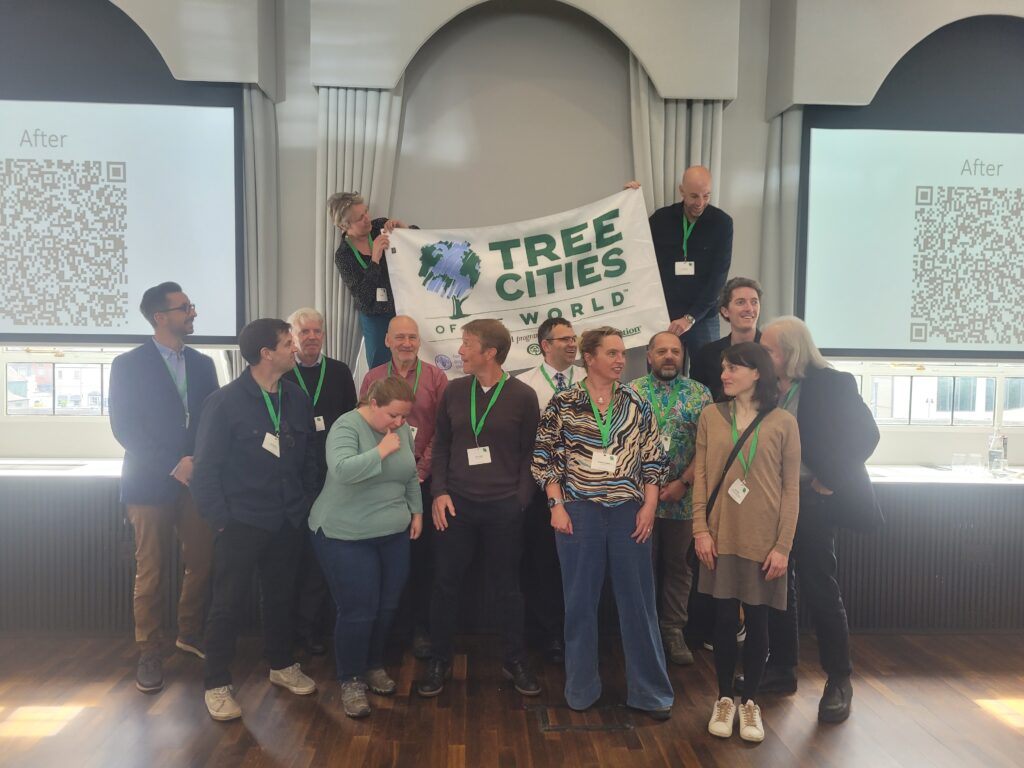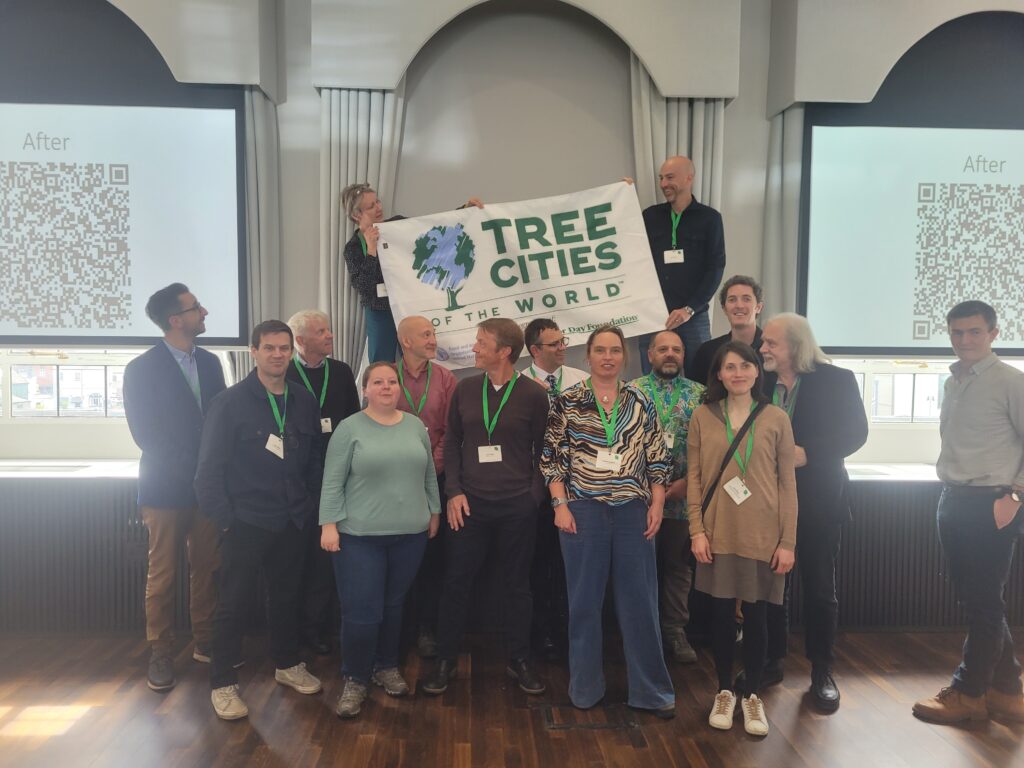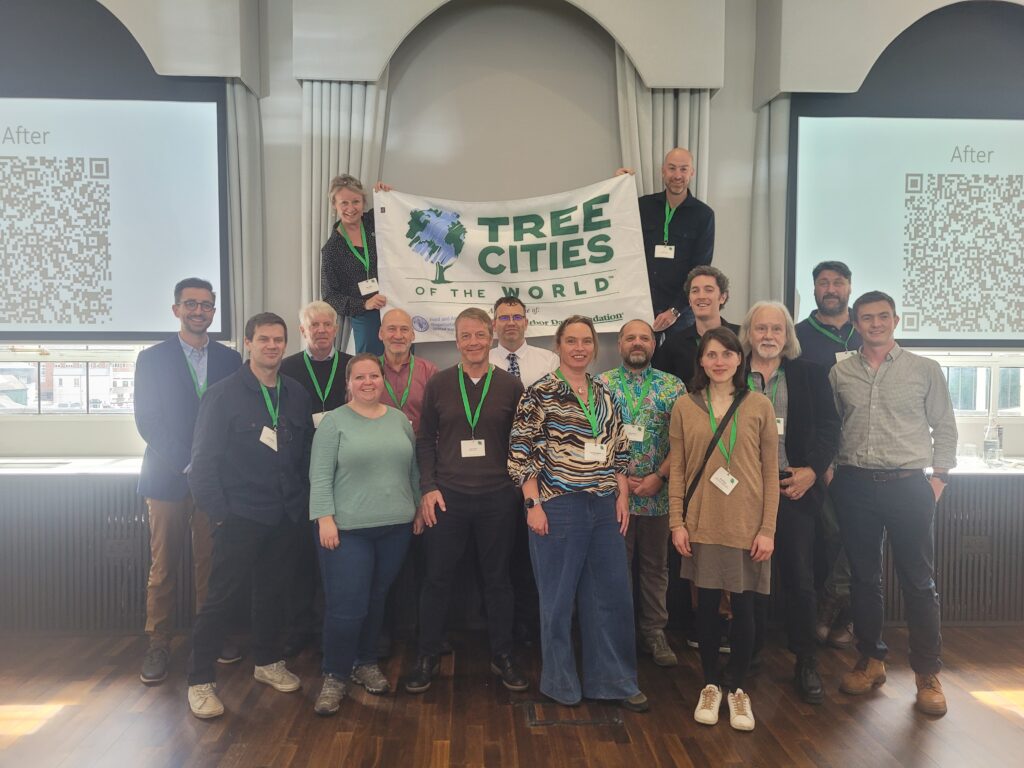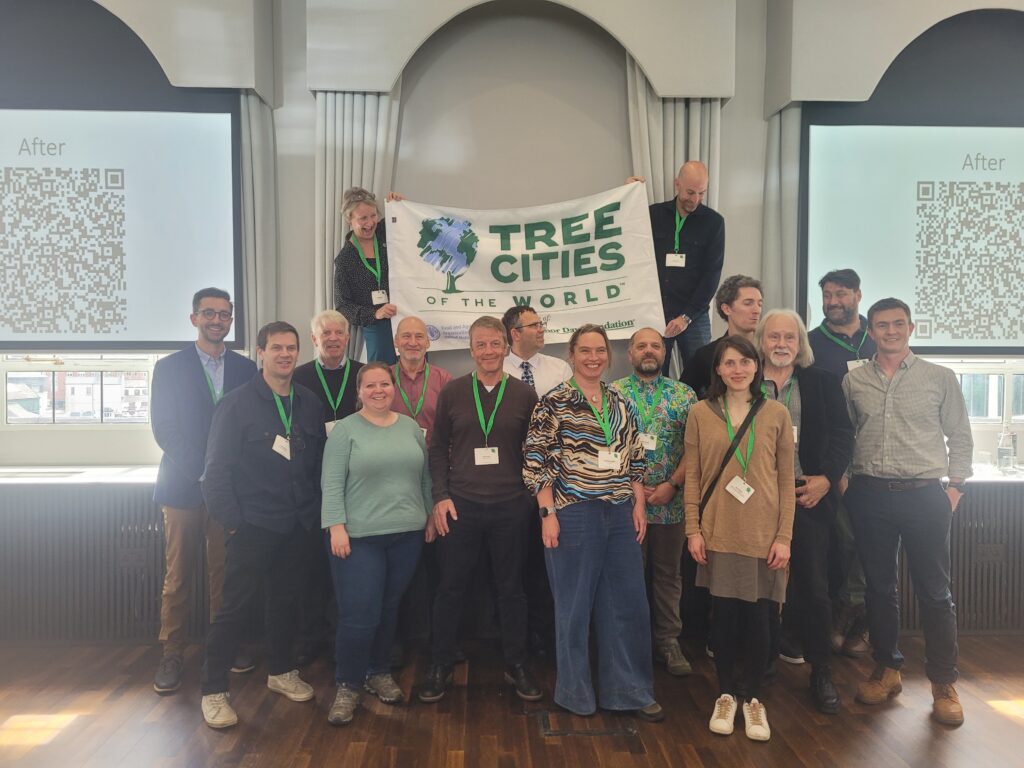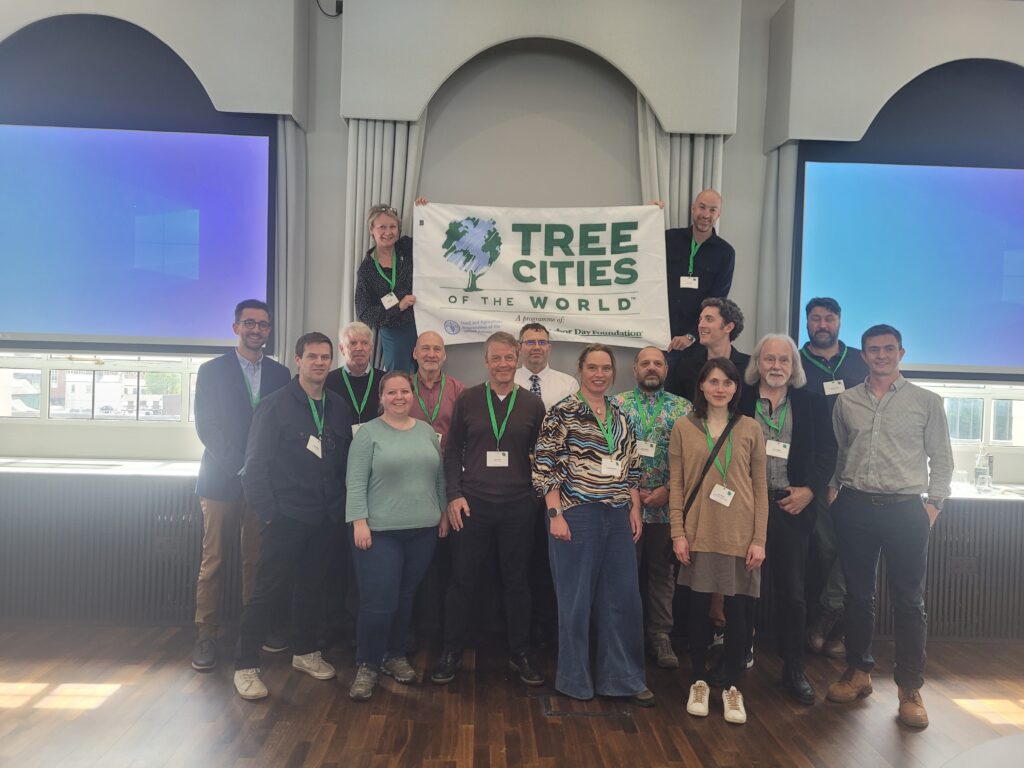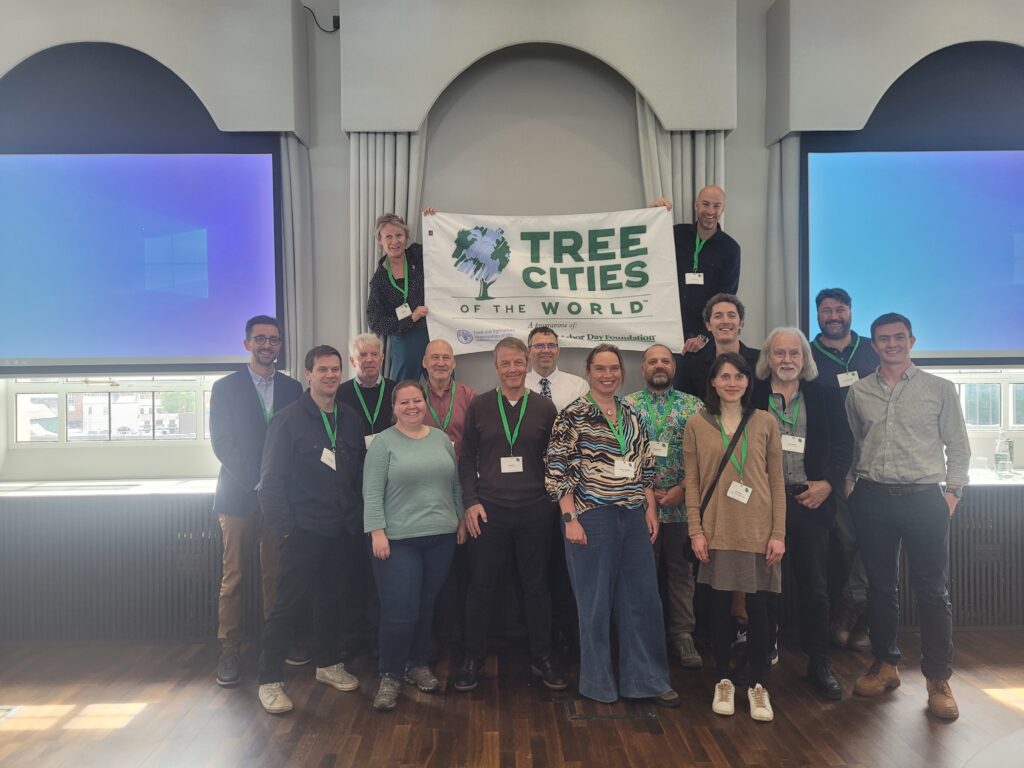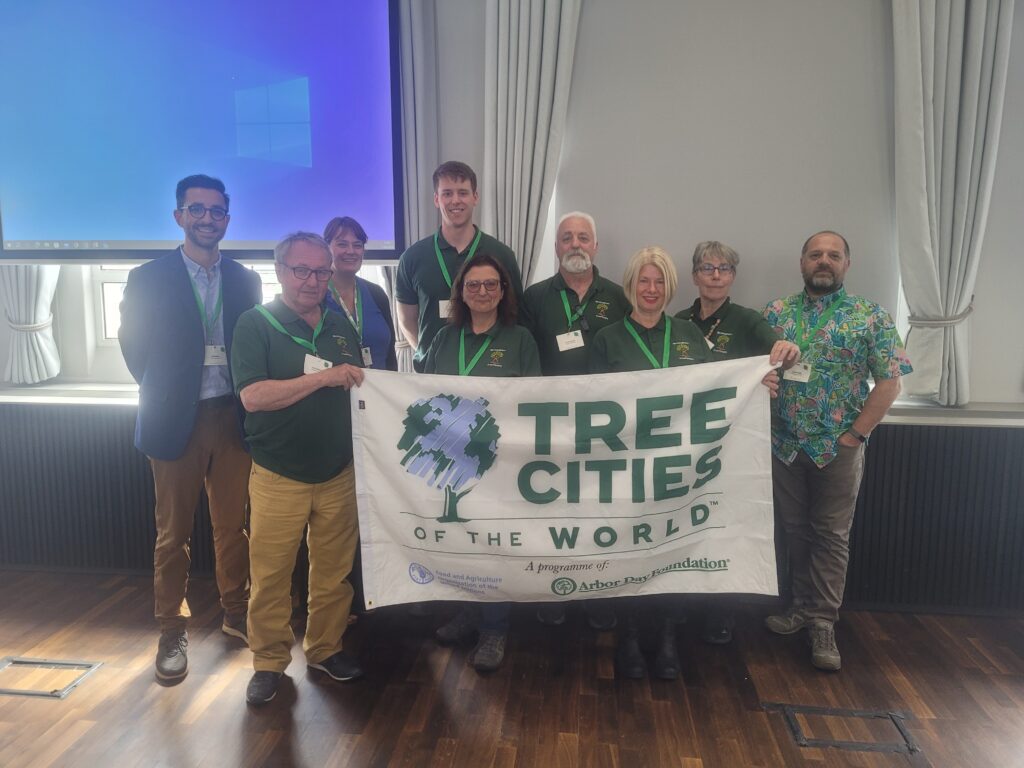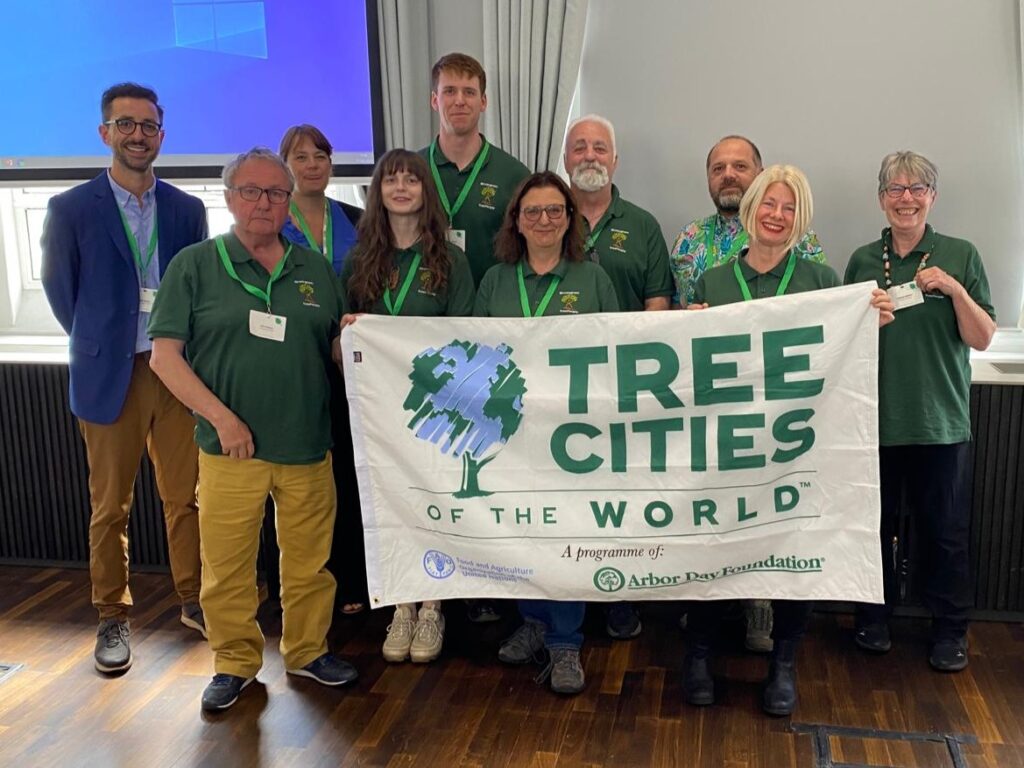
The first UK Tree Cities Forum took place on the 11th June 2024 in the University of Birmingham’s The Exchange, seeing a menagerie of expert speakers take to the podium to discuss The Food and Agriculture Organization of the United Nations and Arbor Day Foundation’s Tree Cities of the World programme. From councils all over the country, attendees have had the chance to hear first-hand experience from professionals in their field of urban forestry, and why their special cities received the Tree City status that they have proudly and individually achieved.
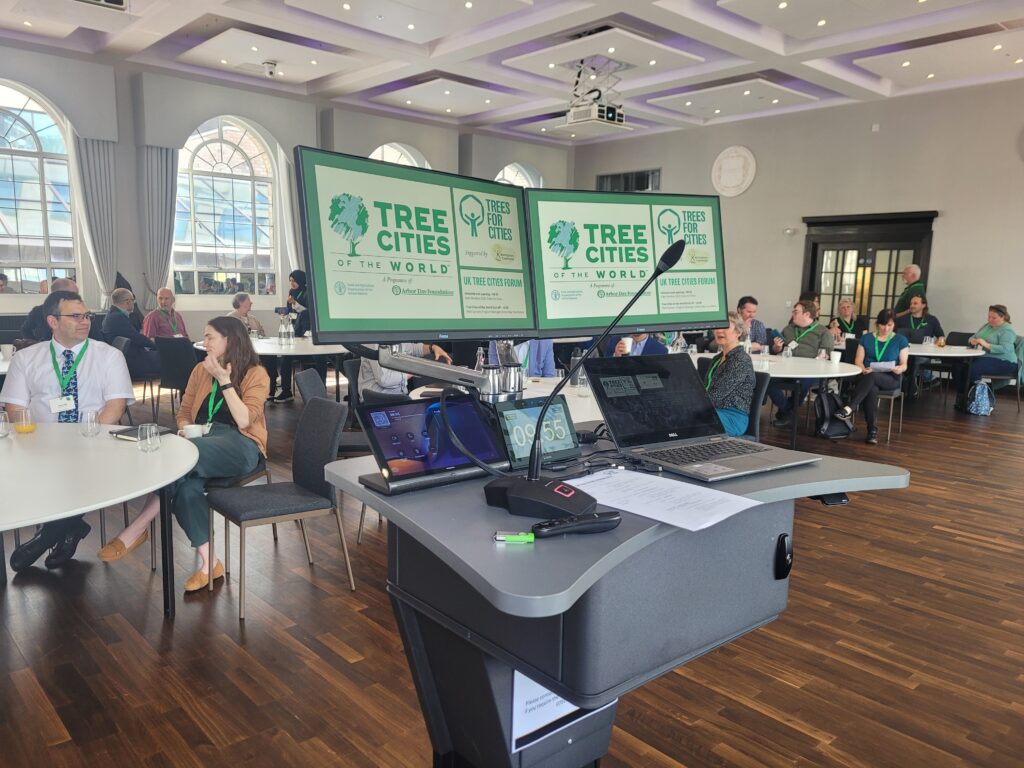
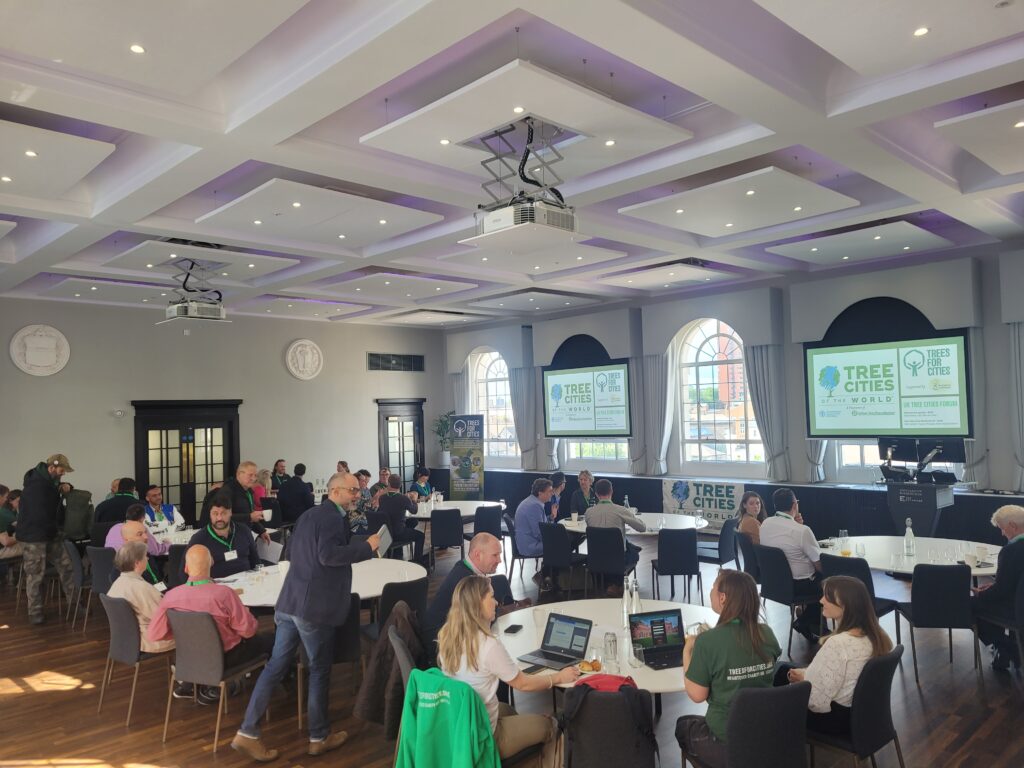
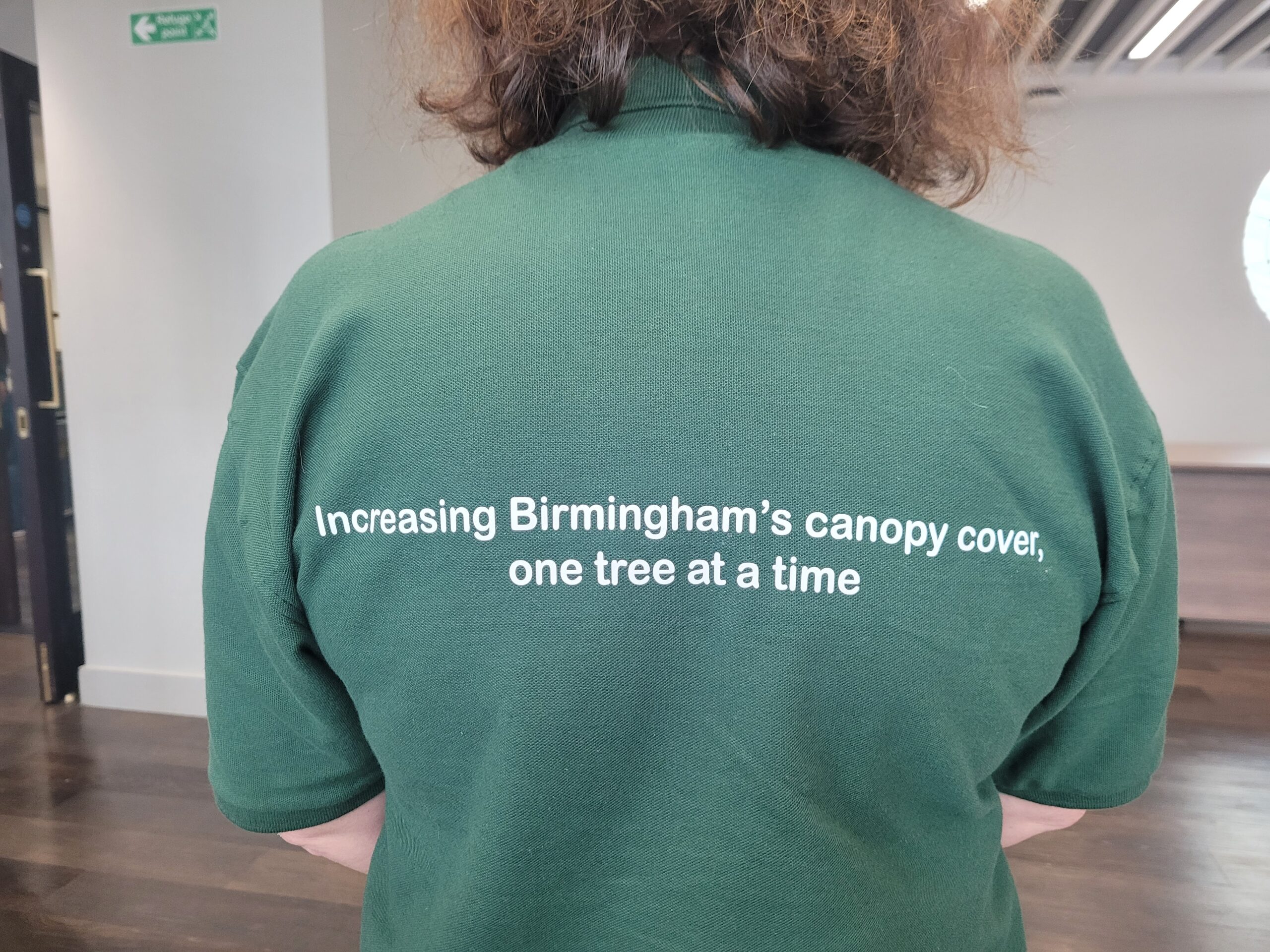
Opening Tree Cities Presentations
After an introductory remark from Kate Sheldon of Trees for Cities – the charity responsible for organising the programme in the UK and the host of today and tomorrow’s conferences in partnership with BTP – our first speaker was Matt Spitsen of the Arbor Day Foundation. With their in-depth network of community partners, they’ve been planting trees where they’re needed most by engaging volunteers and corporate leaders, planting millions of trees in degraded forest land as just one example.
The World Forum on Urban Forests 2018 saw the birth of the Tree Cities of the World, and by its second iteration in 2023 garnered 1,000 participants from 60 countries. Today, there are 200 tree cities in 22 countries around the world. Matt mentioned an analogy of a young boy throwing a rock into a pond, leaving without waiting for the ripples and let the pebble sink. We must plant the seeds and wait for them to grow, taking our time to engage communities and meet the criteria needed to make change.
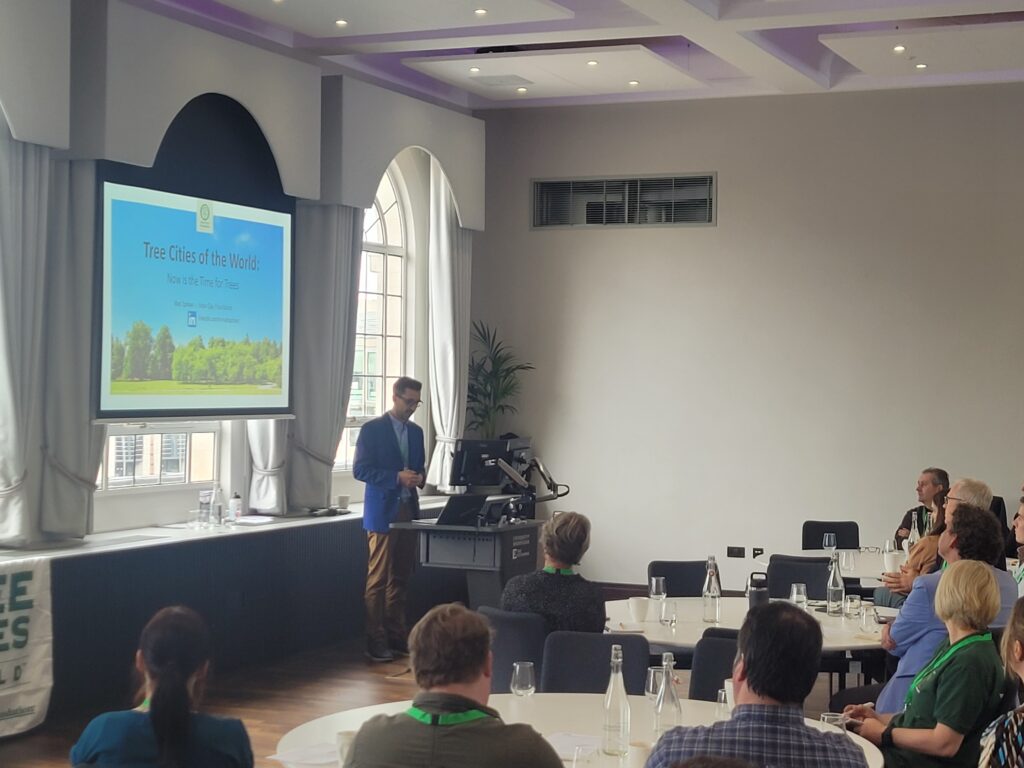
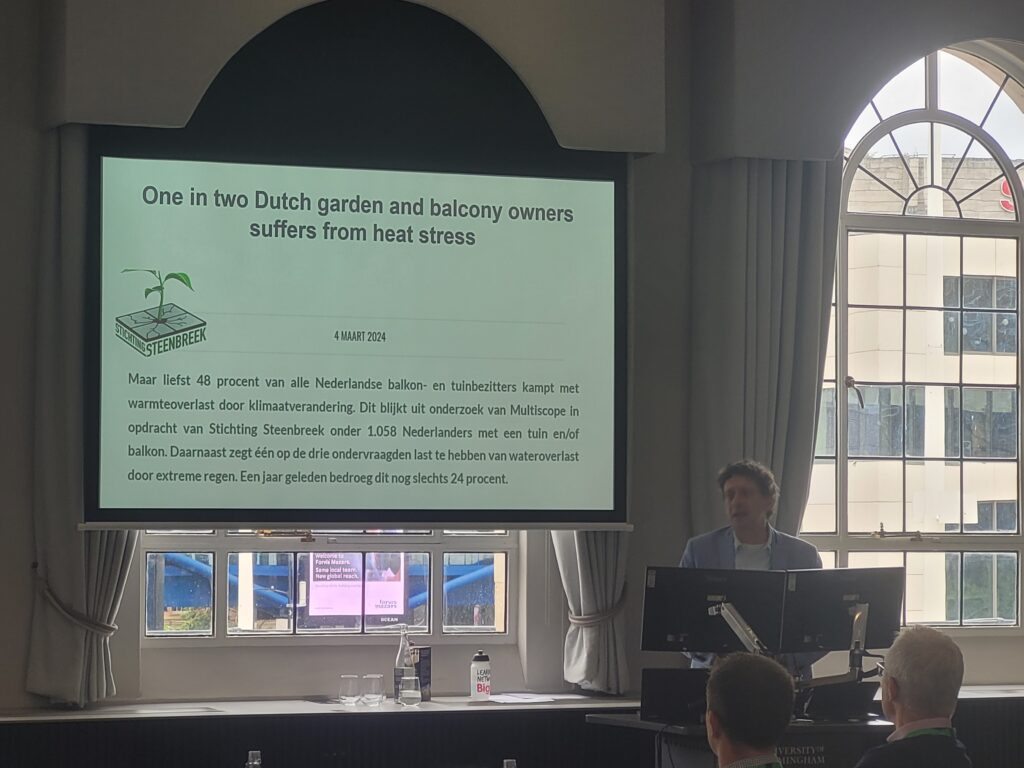
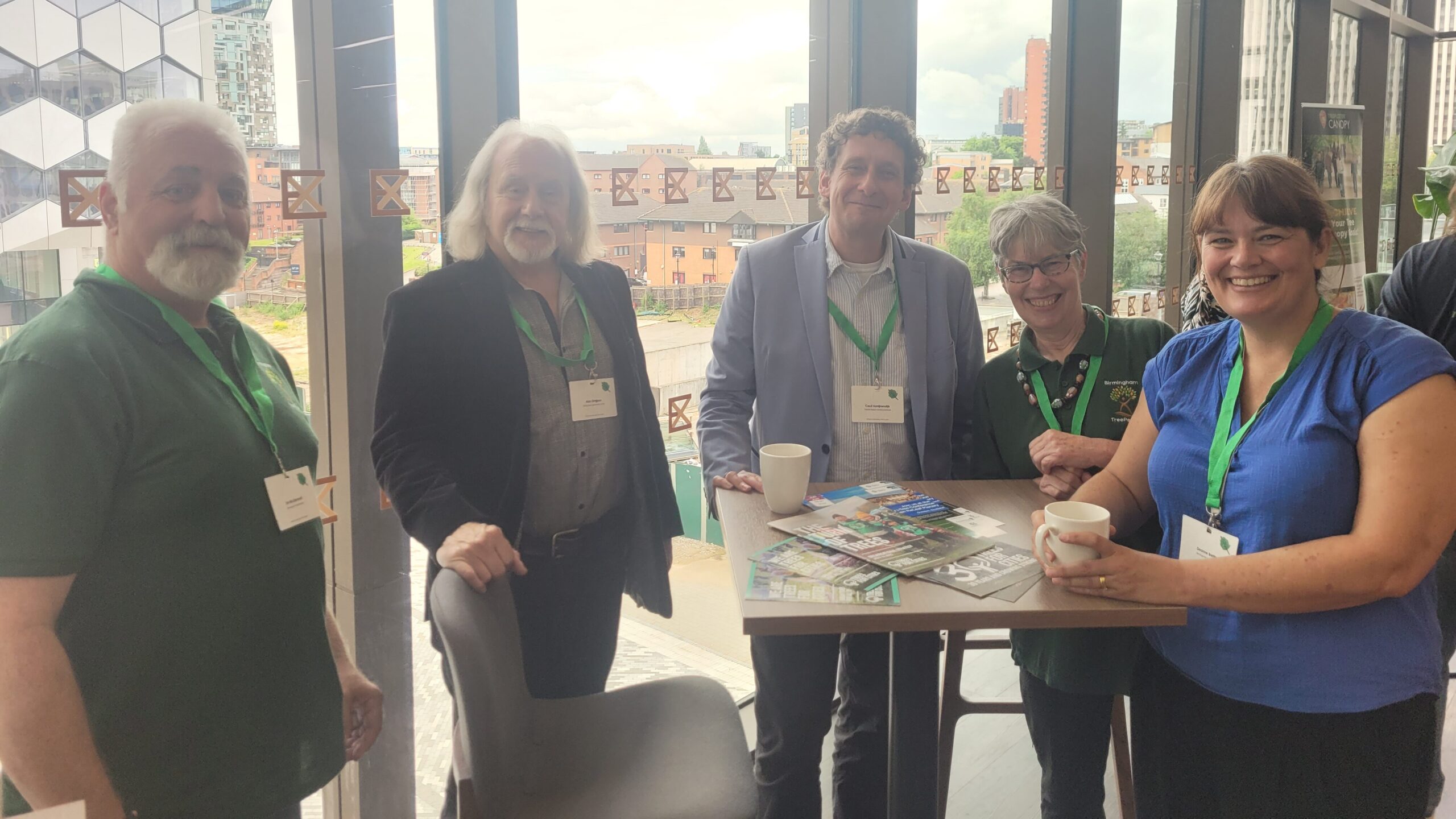
Cecil Konijnendijk was the second speaker, Founder of Nature Based Solutions Institute and instigator of the 3-30-300 rule now employed across most of the urban forestry sector for evidence-based metrics, and this global urban forester has revolutionised tree strategy not only in his home country of the Netherlands, but every country he’s operated within. Highlighting the impact green space has on our mental health and well-being, and how the monetisation of these natural assets enhances the assessment and management of the urban forest within a region. Cecil believes adding value to the programme by means of activities, standards revisions, visibility and awareness drives, and expanding the global scope into underrepresented regions, will boost the programme exponentially.
Tree City Standard Presentations
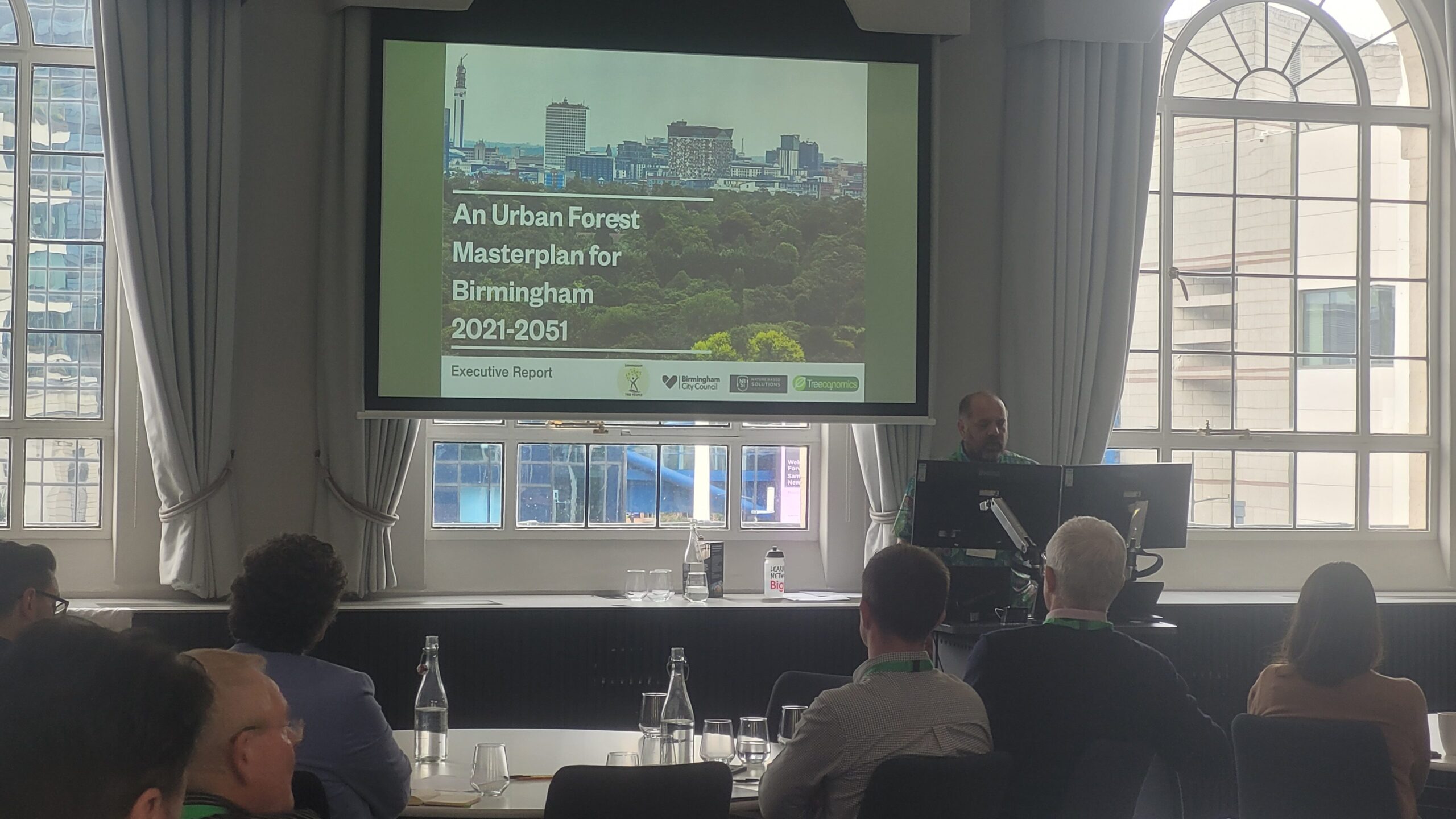
Birmingham City Council
Birmingham TreePeople’s Simon Needle, Birmingham City Council, discussed the first standard of the Tree City programme – there are 5 standards that a city must meet to qualify as a Tree City – establishing responsibility. Due to the challenges this city faces with a rising young population, myriad low canopy high priority wards and high greenhouse emissions, maintaining appropriate green space has been difficult. Falling tree deaths marred the Council over a decade ago, and to rectify the tree management situation they have endeavoured – the last 15 years – to renew the public realms lost trees, and business improvement districts have picked up on this to introduce more greenery into the city centre.
Working with Birmingham Trees for Life to plant more trees in Birmingham, the Broad Street plane tree was still removed, due to the new Metro line extension, leading to a review of their street tree policy. This new policy was received with open arms and unanimously voted for by a cross-party board and using CAVAT to evaluate the trees as community assets. Now that Birmingham TreePeople are employing community engagement surrounding nature and trees, by shaping and delivering equity-based planting and community urban forestry around the city, the volunteer network has grown exponentially, the Urban Forest Masterplan has been constructed to inform green infrastructure until 2051. All of this led to Birmingham receiving Tree City status in 2019, in response to genuine municipal and residential needs.
Belfast City Council
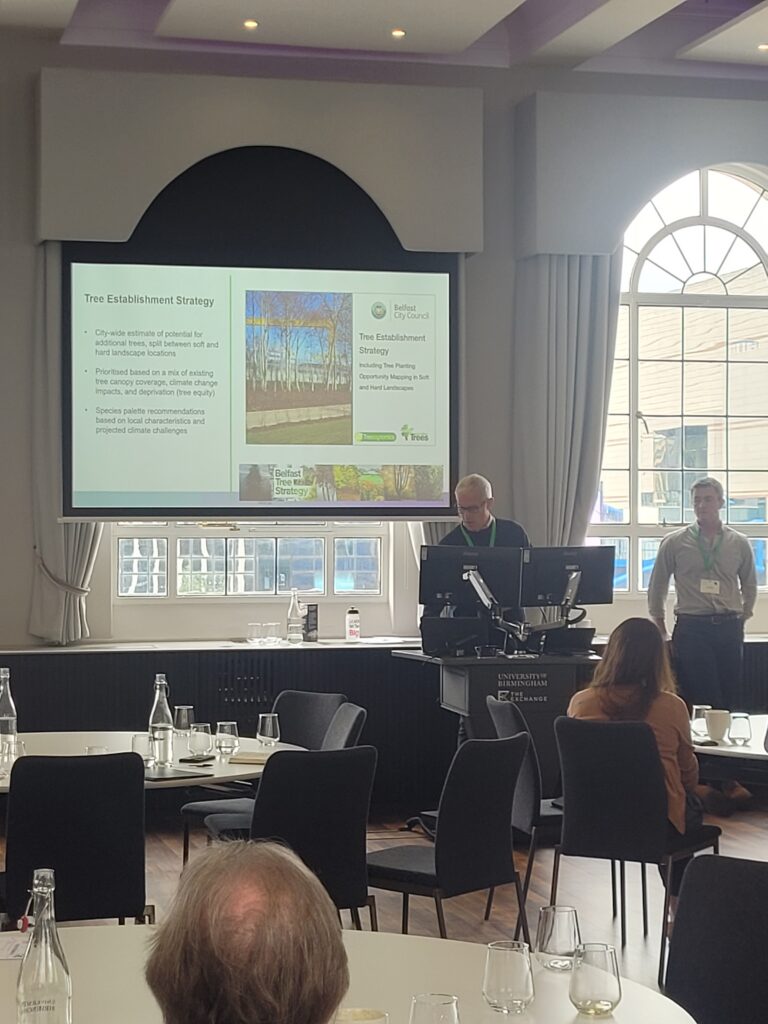
Belfast City Council was the next Tree City to present, regarding the second criteria for the programme: setting the rules. Ross Deering of Belfast posed the stark contrast between their concrete jungles versus green space, thus employed a Tree Strategy like ours built on a similar model, and was also produced in partnership with Treeconomics.
John Rose, Treeconomics representative, in the second half of this talk stated the importance of stakeholder engagement and public consultation in implementing the strategy, as it is the cornerstone of success for these types of projects. Local detail equals the tools for local action, and by informing communities using tree mapping also informs the planting itself, ensuring long-term involvement and care. It isn’t just about setting the rules, it’s about building upon them.
City of Edinburgh Council
Steven Cuthill from City of Edinburgh Council took to the podium to discuss the third standard, know what you have, and took us through the key stages of their journey from 2012’s Forest and Woodland Strategy, through to the Nature Emergency declared last year. 2013 saw an iTree survey take inventory of the city’s trees, to inform the action plan the following year in 2014 to address the attrition (damage, vandalism, weather, etc.) by initially crunching numbers. 75% are privately owned, creating intricate challenges, but they have still achieved 36% towards the overall target and became a Tree City in 2020. From here, new realistic targets could be set for achieving a ‘Million Tree City’, introducing citizen science projects to involve the public and increase benefits for those residents, keeping it simple to build on their curiosity; communal involvement sheds true light on the urban environment.
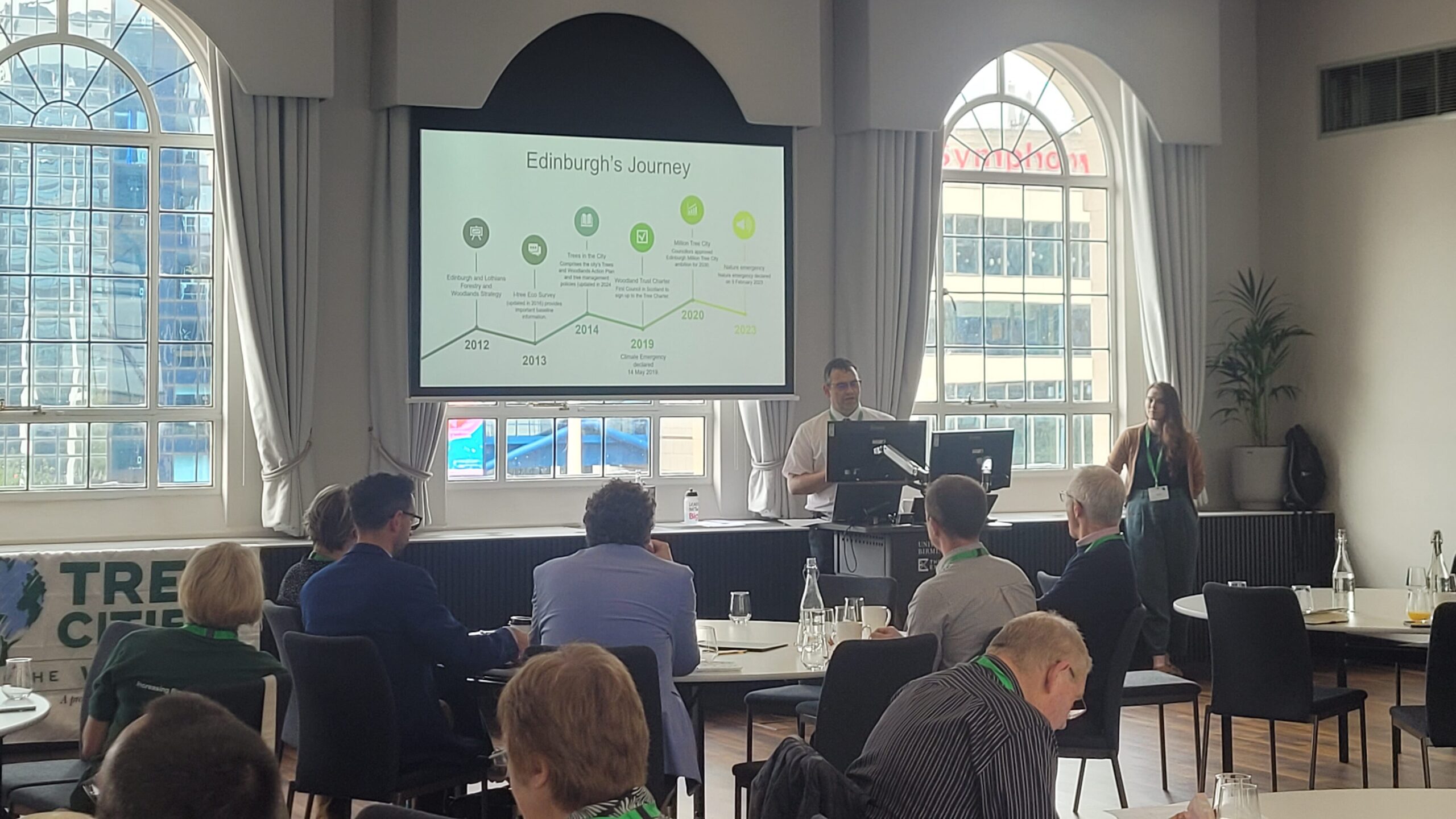
Kathryn Hand of Forest Research joined Steven, by delving into the reasons citizen science projects are imperative for community engagement, data collection, and long-term establishment or maintenance. We already know trees make us happier and healthier, so those that participate feel those benefits, and by engaging as soon as possible the motivation is increased, and the networking sustained over the period of the project. Online projects are challenging in the sense there’s no face-to-face contact, that’s why group fieldwork appears to draw garner and endure attention, due to the increase in social benefits and targeted localised work is more appealing, especially to individuals.
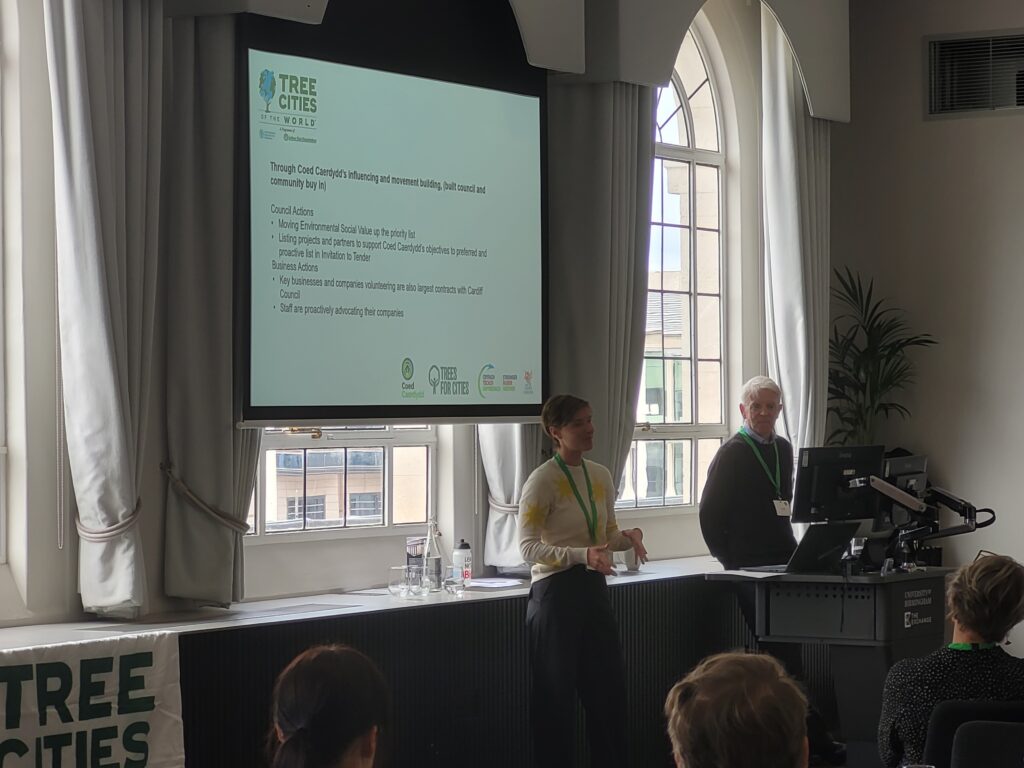
Cardiff Council
Cardiff Council’s Chris Engel’s presentation discussed the fourth standard for becoming a Tree City of the World, allocating resources, and the council’s ambition to crease the canopy cover from 18.9% to 25% by 2030, where most cities have a baseline of achieving 10%. They primarily had no expansive budget and hence realised the trees were merely being maintained, for those that weren’t lost, so the One Planet Cardiff Strategy – with a net zero ambition – was introduced, an iTree survey conducted 2015-16, and their pilot project secured almost one million in sponsorship, funding two paid posts to organise the programme and volunteers (similarly to the Future Parks Accelerator and Urban Forest Accelerator programmes). The most impressive feat this council has undertaken is the installation of what was originally a temporary, intermediary tree nursery for the city, eventually moving onto growing their own trees from seed.
Catherine Horan of Tree for Cities led the second part of this presentation, exploring the role of procurement and the social value of green projects, with an emphasis of the economic and environmental benefits that come alongside.
Ipswich Borough Council
Ipswich Borough Council’s Lisa Stannard covered the fifth standard of celebrating achievements, humorously highlighting the detest for national holidays the project manager harboured, so ‘Ipswich Loves Trees Day’ was born on Valentine’s Day. Through advising and informing that whip planting was good for families with children as well as Councillors, with the trees eventually growing to meet the requirements needed. By teaching people a new understanding of trees, such as the physical well-being, mental health, and social benefits, the community engaged tree planting was well-received, leading to the council establishing community orchards in half of the wards in the area so far (with an aim for one in every ward).
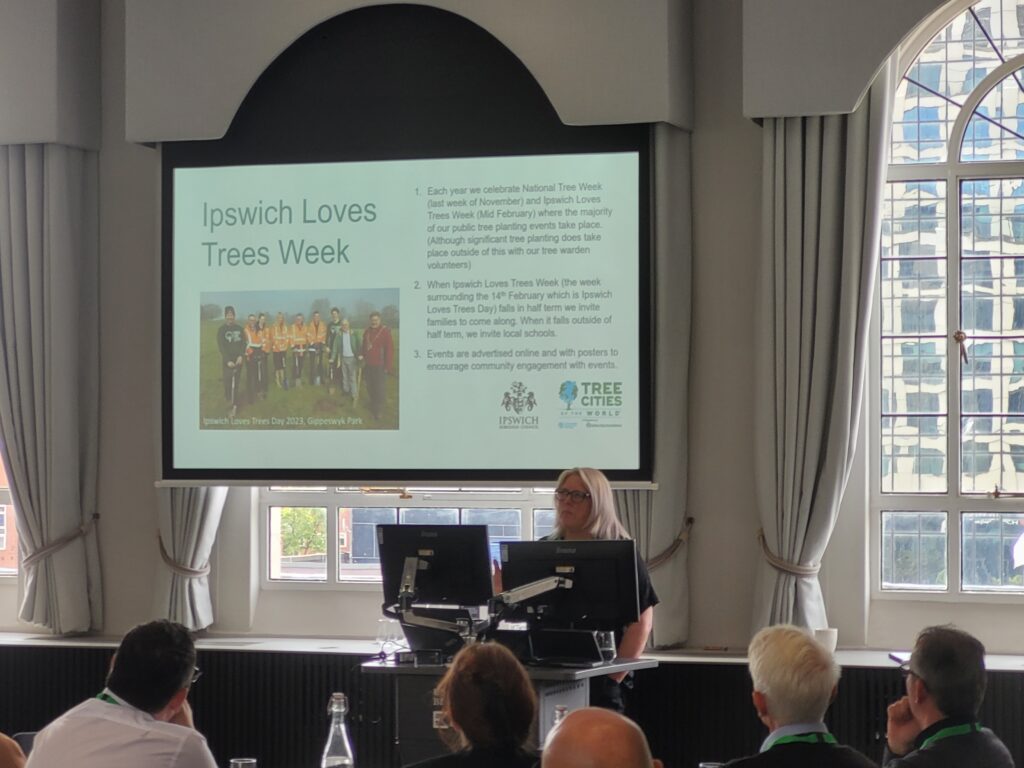
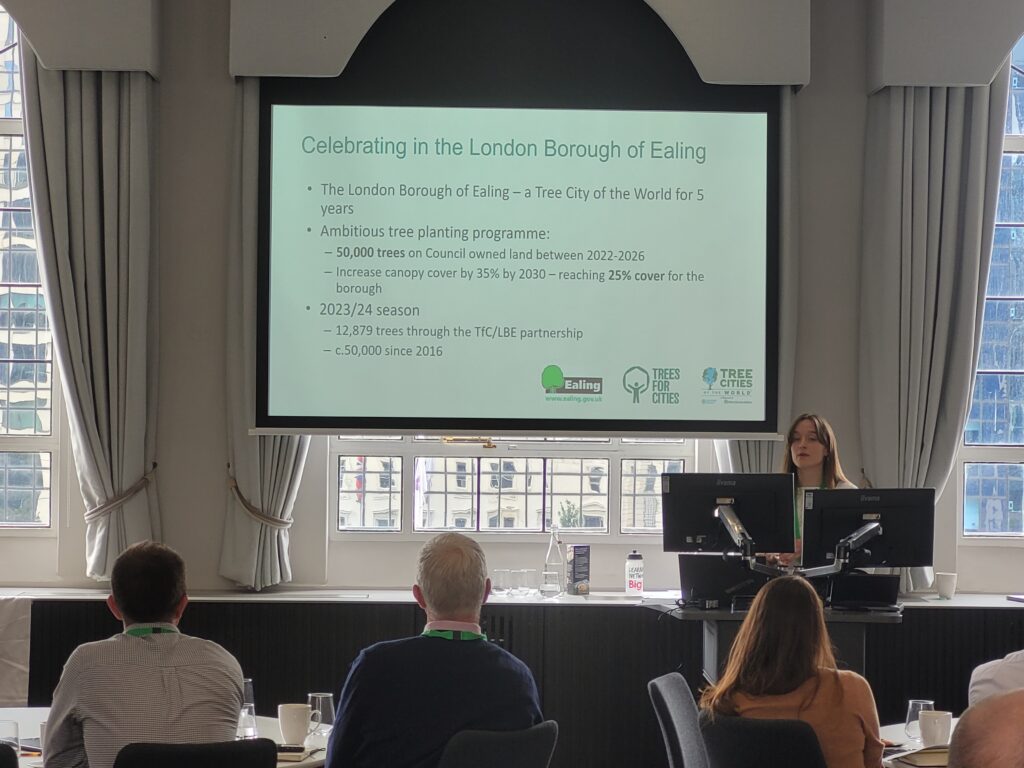
The City of Ealing has been a Tree City for 5 years, and Trees for Cities’ Susannah Littlewood discussed their annual celebration, Ealing Tree Festival, beginning 2022. The initial event garnered 100 attendees to visit the many arts and crafts, nature, and tree-themed stands. The 2023 festival celebrated the programme by mobilising the community, and teaching more tree benefits to expand the residential knowledge, leading to the 2024 festival taking place across the 7 towns of Ealing.
Questions & Answers Session
During the questions and answers at the end of the presentation session, a question was asked concerning the measurement of tree establishment, where Edinburgh stated although they account for net gain losses in tree numbers, there is still more work to do on mortality rates, a theme that unfortunately plagues all of tree planting. That’s why these councils and non-profit organisations are working closely with communities, encouraging them to take ownership of their local trees, to care for them and see them grow with us.
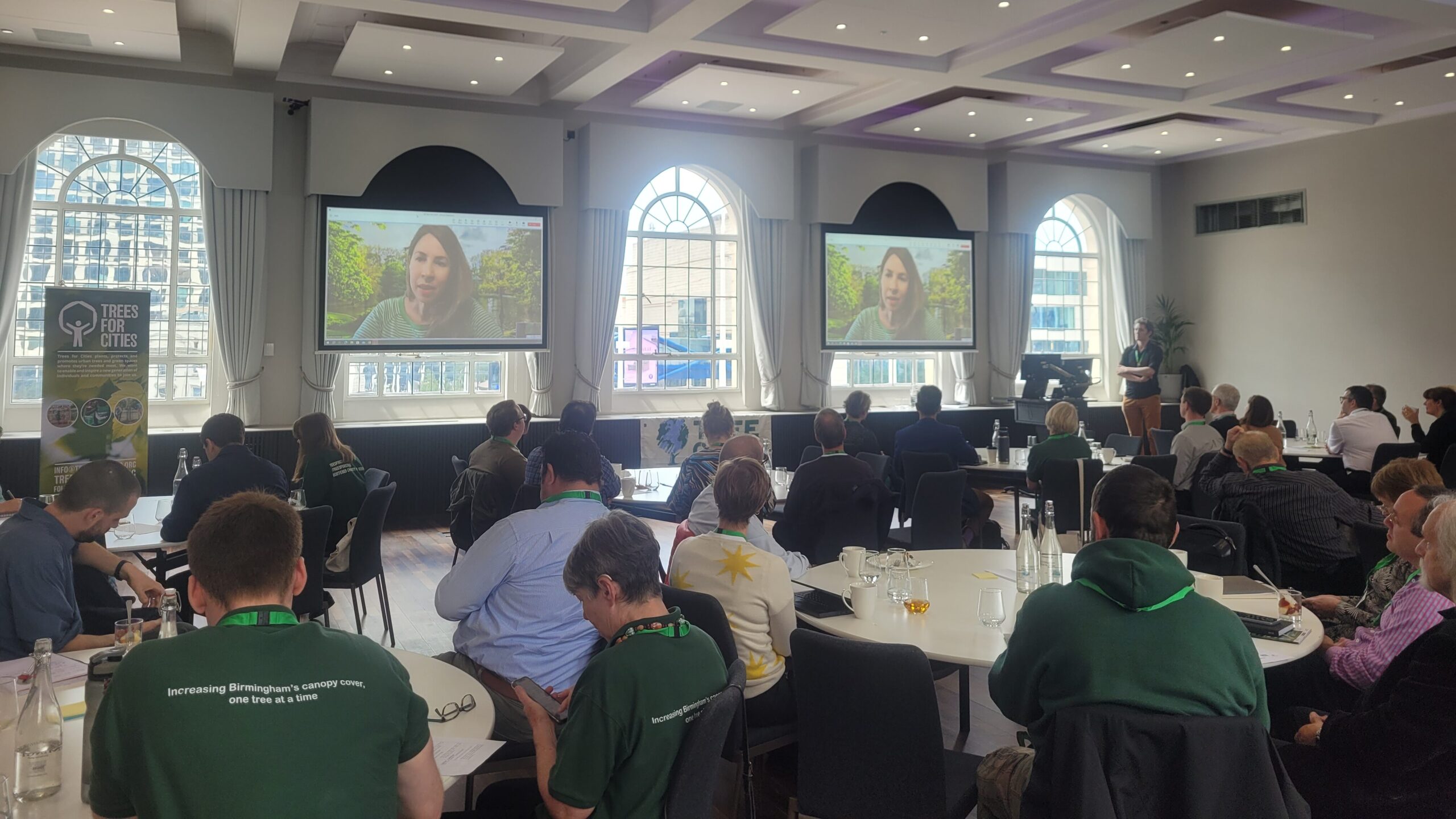
Due to a technical error, Ana Macías from Arbocity – representing a Spanish Tree City – was unable to give her full presentation, but for what was heard the themes were carried over from the previous talks, like upskilling through courses, raising awareness through conferences and event presence, and planting with community engagement. The residents are at the heart of the urban forest in any country around the globe.
Tree Cities Afternoon Sessions
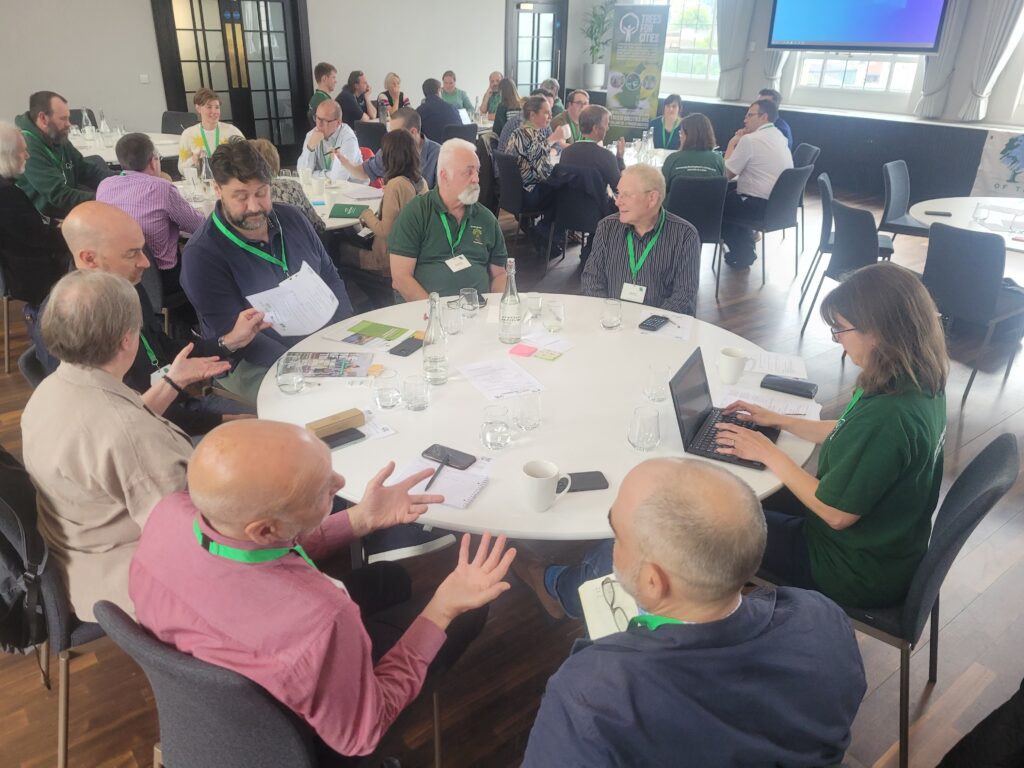
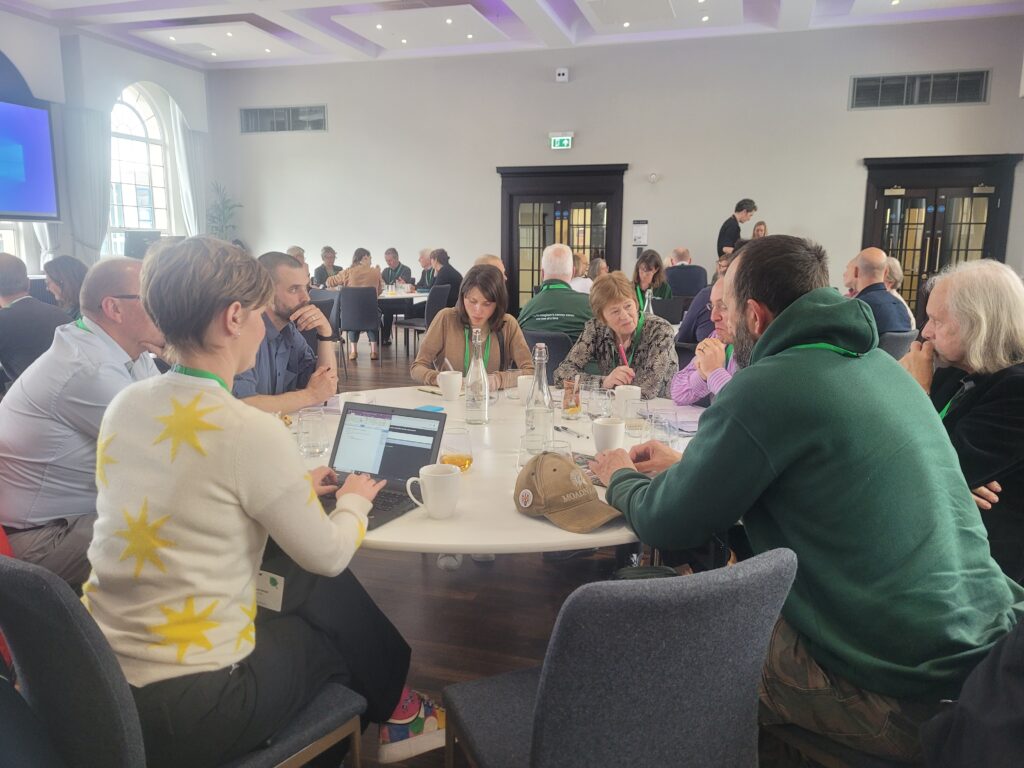
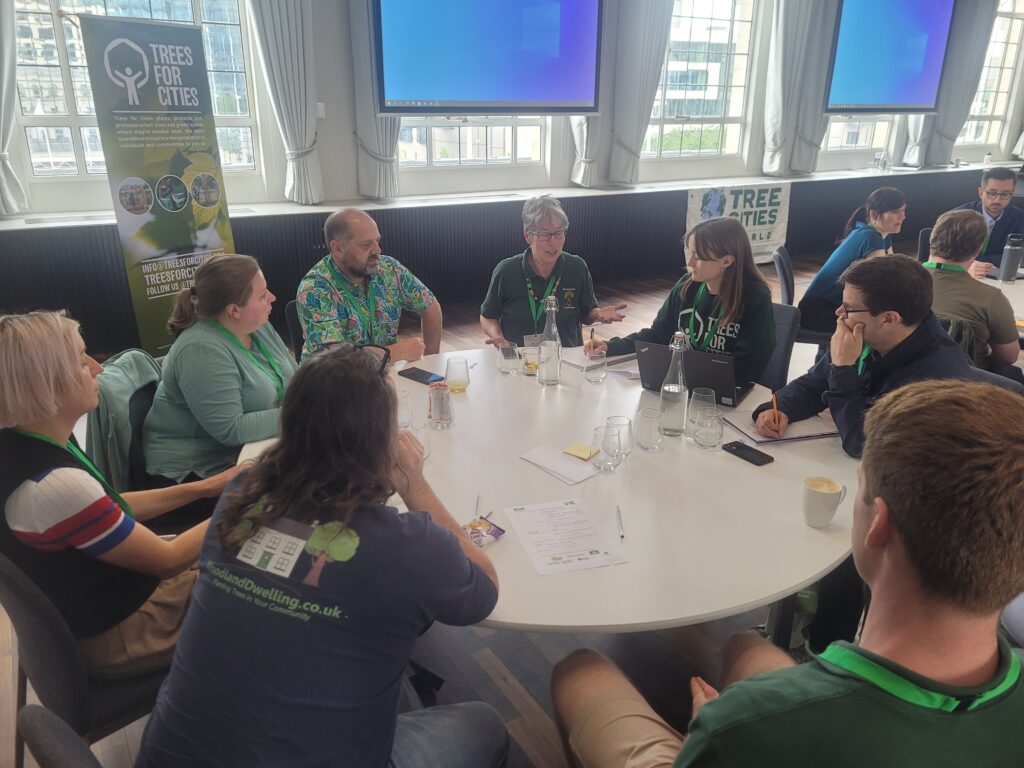
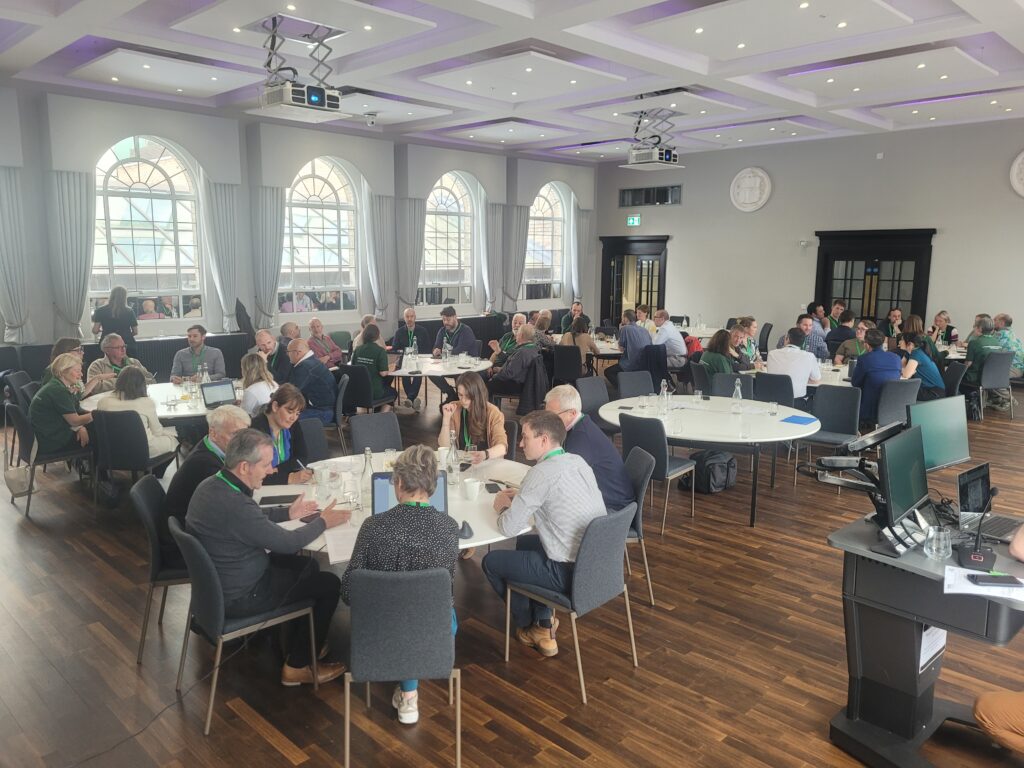
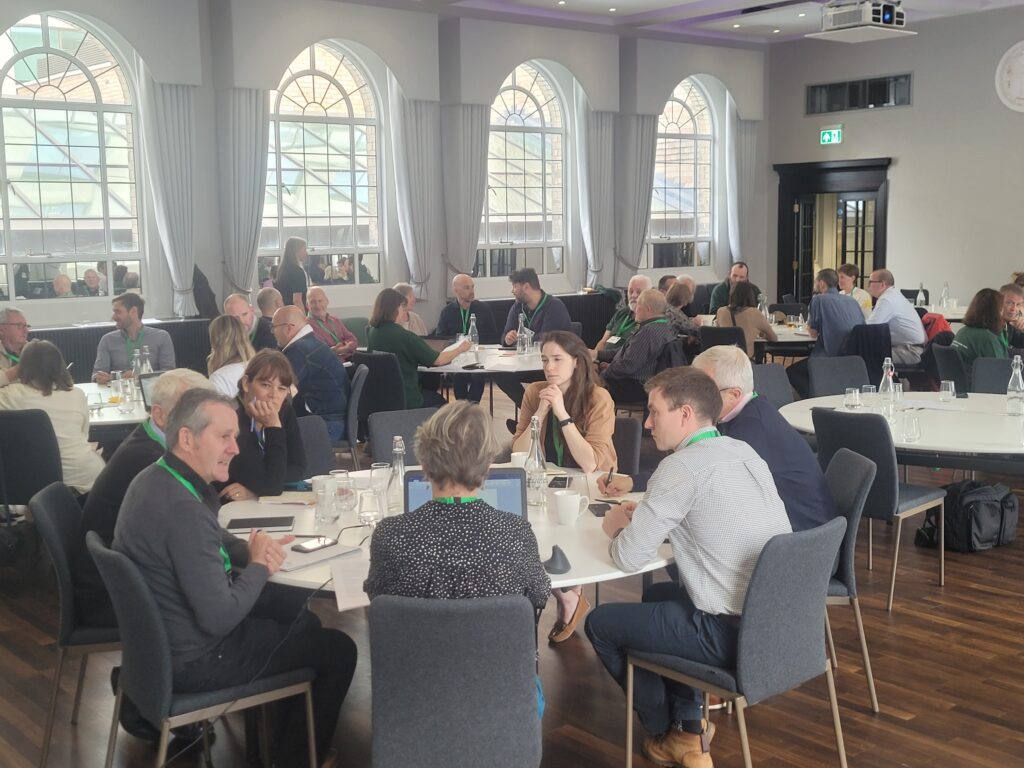
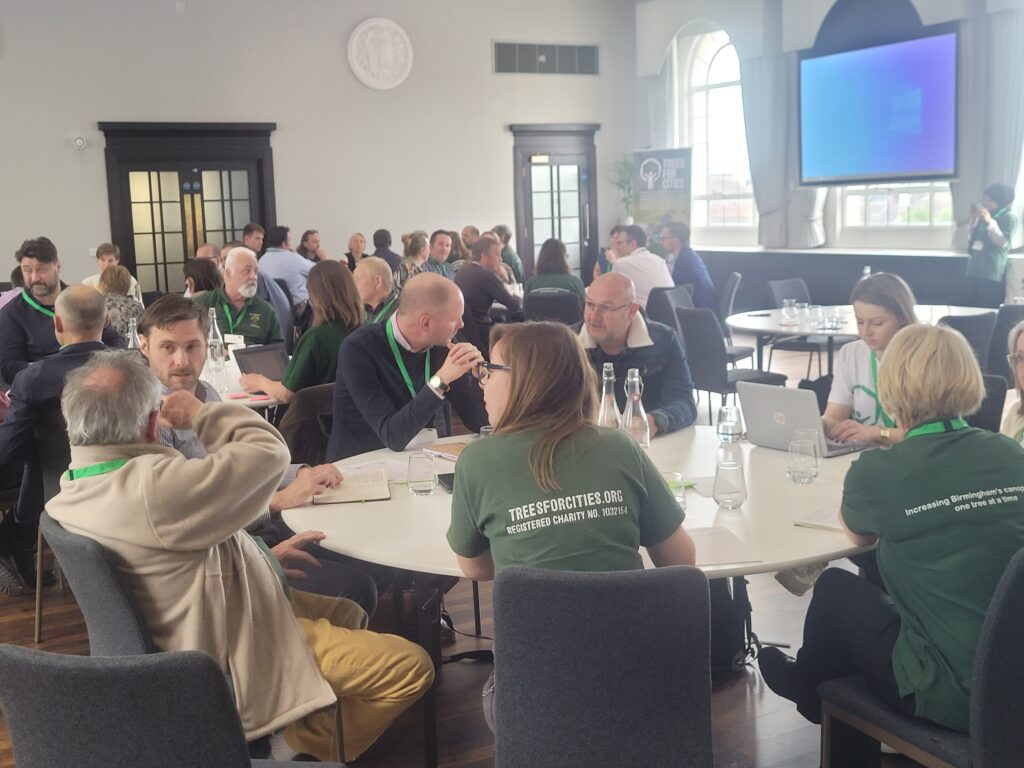
The afternoon sessions saw the participants working with facilitators at each table, planning and reviewing new themes and ideas for the expansion of the Tree Cities network and scheme in the UK. After the inspiring talks beforehand, the discussions were insightful and fruitful, and the future of the Tree Cities of the World programme in the UK looks adequately bright.
We want to deeply thank every enthusiastic organiser, speaker, sponsor, and attendee individually, for making this conference a ‘start as we mean to go on’ moment, leaving us waiting eagerly for the second UK Tree Cities Forum next year.
The first UK Tree City Forum was organised by Trees for Cities, in partnership with Birmingham TreePeople, and sponsored by Woodland Dwelling, Kier Group, The Woodland Trust, and the University of Birmingham.
